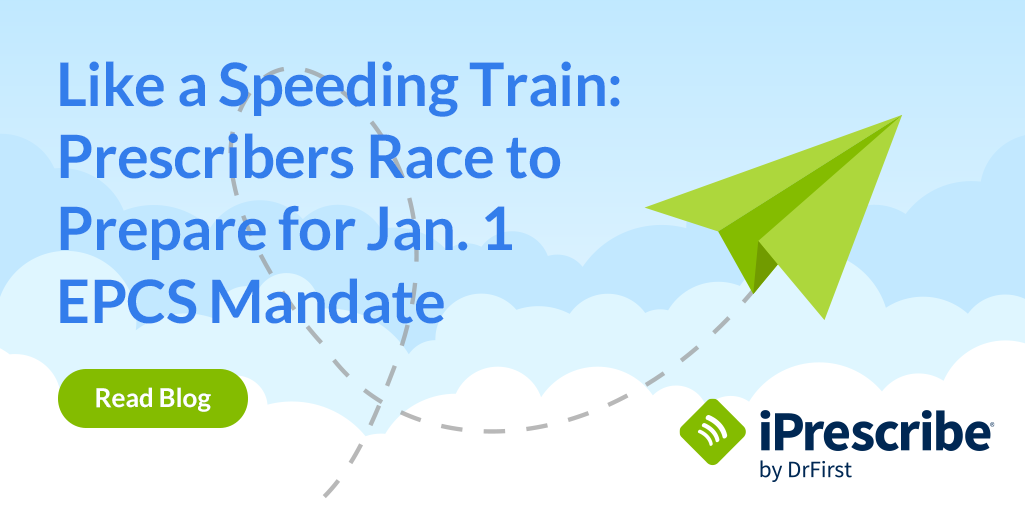Integrated workflows ease staff burden and satisfy regulatory mandates.
Like a Speeding Train: Prescribers Race to Prepare for Jan. 1 EPCS Mandate


A federal e-prescribing mandate for controlled substances that’s been inching its way forward for five years is now barreling at full steam toward a January 1, 2023, deadline. That’s when the Centers for Medicare & Medicaid Services (CMS) will begin enforcing the electronic prescribing for controlled substances (EPCS) rule for providers whose patients are enrolled in Medicare Part D and Medicare Advantage prescription drug plans.
CMS will begin enforcing the mandate for prescribers nationwide with few exceptions. For prescribers in 15 states where e-prescribing hasn’t already been required on some level, that leaves about six weeks to get fully prepared.
The federal EPCS mandate is not new – it was passed in 2018 as the SUPPORT Act and was initially slated to go into effect in 2021. Two years of pandemic-related extensions have expired, and with the federal government giving no indication that further extensions are coming, prescribers in several states are now scrambling to get up to speed on the new rules and the technology they’ll need to manage compliance.
Some will no doubt lean on their peer networks to learn what’s worked well in the 35 states that have mandated e-prescribing at varying levels in recent years. Among the states with new mandates set to take effect January 1— Maryland, Illinois, Ohio, Michigan, and Utah—Michigan will become the fourth state to require all prescriptions to be sent electronically, not just controlled substances. New York, California, and Minnesota have already completely done away with paper prescriptions.
“Our hope is that providers see these EPCS mandates as more than a means to mitigate the opioid crisis, but as the impetus to bring patient health and safety into the digital age,” said Colin Banas, M.D., Chief Medical Officer for DrFirst. “There’s no doubt about it: e-prescribing is better for patients, providers, and healthcare systems.”
DrFirst developed and introduced the first-ever EPCS technology in 2010, working with the Massachusetts Department of Health under a waiver from the U.S. Drug Enforcement Administration (DEA).
Is your existing technology the right solution for your practice?
Because e-prescribing systems vary in features and functionality, prescribers need to ensure that the solutions they consider are easy to use, efficient, cost-effective, and have robust clinical decision support.
DrFirst™ offers two e-prescribing products that streamline workflow, inform medication reconciliation, and support medication adherence: the web-based Rcopia® software and the mobile iPrescribe® app. Both solutions provide:
- Automated safety alerts for potential allergies and drug interactions, based on the patient’s information and DrFirst’s robust medication history
- Prescription formulary and price transparency, as well as alternative therapies to consider, based on the patient’s insurance coverage
- Provider-specific favorites to save keystrokes
- Prescribing for all medications, including controlled substances
- In-workflow checking of state Prescription Drug Monitoring Programs (PDMPs) to help mitigate the opioid crisis
iPrescribe is available on both Android and iOS platforms.
Learn more about Rcopia and iPrescribe on DrFirst’s website.


